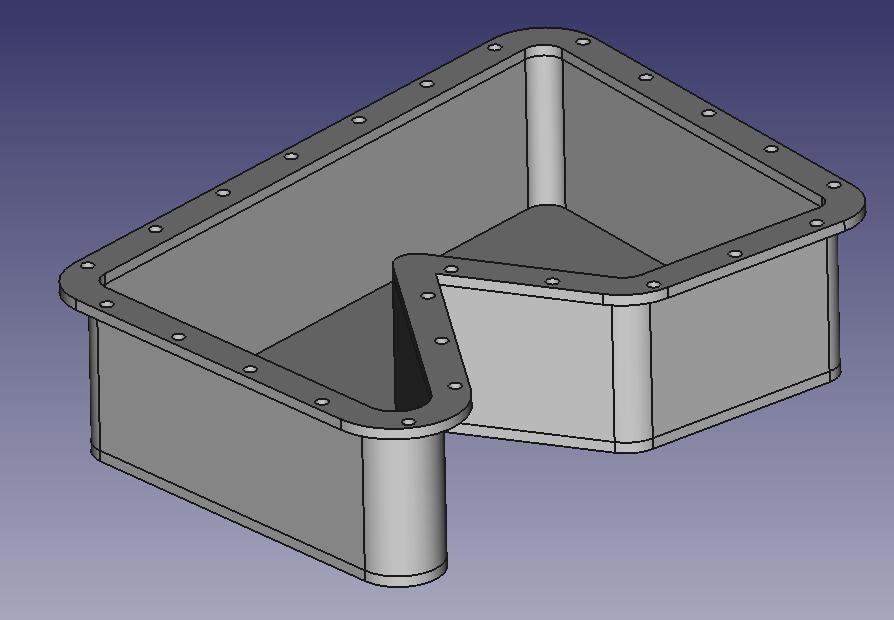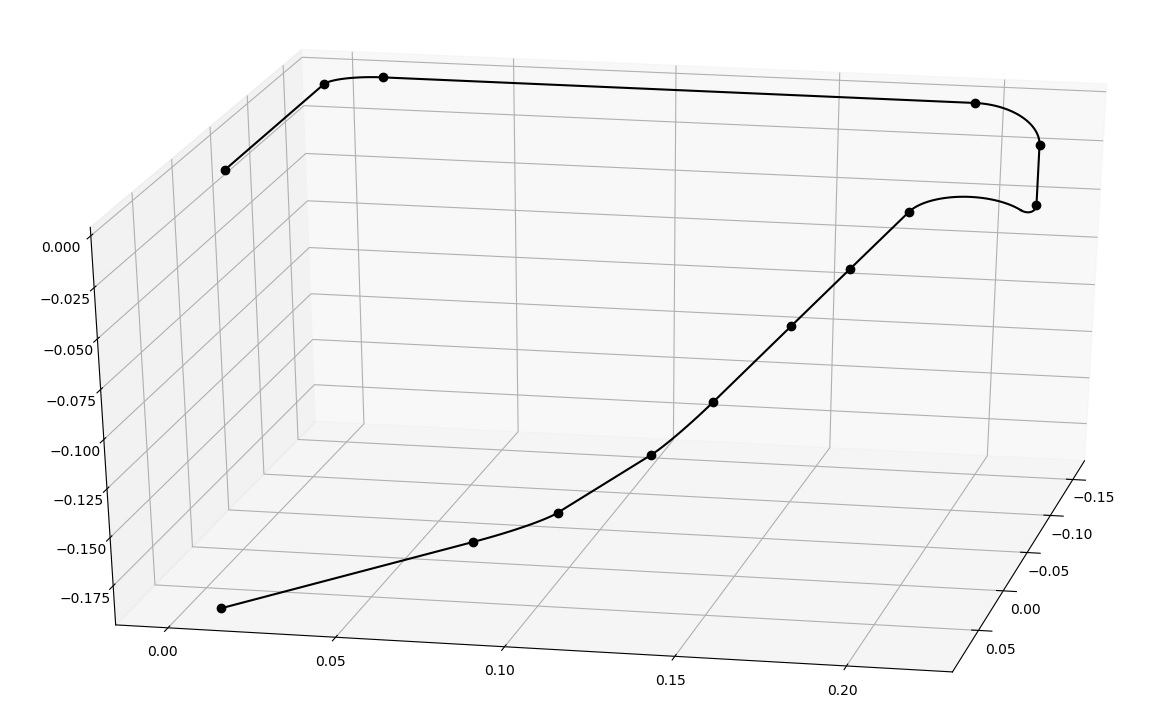
Volmdlr
A computations-oriented python VOLume MoDeLeR with STEP support for import and export
Description
Volmdlr is a python volume modeler used as a CAD platform. With it, you can easily create 3D models from python code. Check the examples to see what you can do with this library.
A casing is defined by a 2D contour formed with the primitive RoundedLineSegment2D. This contour is offset by the casing width.A Sweep is pipes, created with Circle2D/Arc2D which is contained in a Contour2D. You have to create the neutral fiber, i.e., the pipe’s road, with the primitive RoundedLineSegment3D.
A polygon is defined out of points. Random points are sampled and the tested whether they are inside or outside the polygon. They are plotted with the Matplotlib binding MPLPlot with custom styles: - red if they are outside, - blue if they are inside
A 3D B-spline surface split by a 3D B-spline curve.
Features
- Generate 2D and 3D geometries from python
- Handles complexe geometries : B-spline curves and surfaces
- Primitives provide computational tasks : distances, belonging, union, intersections, etc.
- STEP/STL imports and exports
- Geometries display in your web browser with babylon.js
User Installation
pip install volmdlr
# or
pip3 install volmdlrDev Installation
Before using Volmdlr, be sure to have a C/C++ compiler (not necessary on Linux).
N.B : With Windows you have to download one and allow it to read Python’s code.
First, clone the package. Then, enter the newly created volmdlr repository. Finally, develop the setup.py file, and you are good to go !
git clone https://github.com/Dessia-tech/volmdlr.git
cd volmdlr
python3 setup.py develop --user
# or whatever version you are using :
python3.x setup.py develop --userUsage
See the script folder for examples
Documentation
https://documentation.dessia.tech/volmdlr/
License
100% opensource on LGPL license. See LICENSE for more details.
Team and contributors
The project leader is Wirajan Da Silva. Volmdlr is mainly developed by the dessia company as a part of its opensource SDK, but contributions are welcomed. See CONTRIBUTING.md for details









